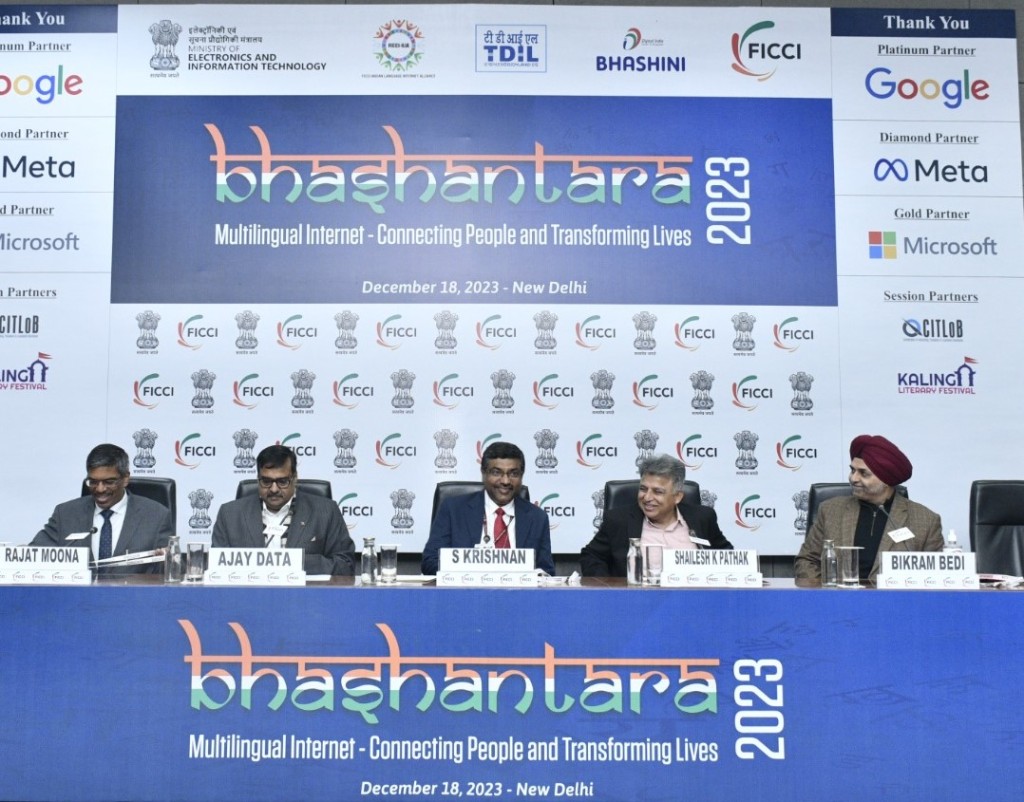
Pune, April 15, 2024: Roots Foundation, in collaboration with Cummins India Foundation and Samhita CGF, organized the ‘Career Guidance Conclave 2024’ at Mahatma Phule Sanskrutik Bhavan, Wanowrie, Pune, Maharashtra. The conclave aimed to empower the youth with insights, strategies, and resources essential to navigating the complexities of the modern professional landscape.
Over 300+ students, along with 13 teachers and parents from diverse backgrounds, eagerly participated in this conclave, seeking guidance and motivation to make informed career choices. The event served as a platform for attendees to explore numerous career avenues , gain valuable insights into emerging industries, and establish meaningful connections with mentors and professionals across various sectors.
The conclave featured a distinguished panel of guests, including Ms. Soujanya Veguru, Head of Corporate Responsibility(CR) at Cummins India Ltd., Ms. Avanti Kadam, Executive Manager – CR at Cummins India Ltd., Mr. Anil Mandrupkar, General Manager – Key Accounts – Distribution Business at Cummins India Ltd., Mr. Abhishek Kadam, Senior Associate at Samhita – Collective Goods Foundation, Mr. Ritwik Bahuguna, Founder & General Secretary, Roots Foundation, and Ms. Vidula Chopra, Program Manager at Roots Foundation.
The conclave was a part of the Life Employability Skills for Adolescents Program (LEAP), a collaborative initiative aimed at holistic development among adolescent students. LEAP focuses on enhancing Functional English, Life Skills, and Career Guidance across 19 schools in Delhi, Bangalore, and Pune, benefiting over 2,000 students from classes VIII-X.
Focusing on students in grades 10-12, the conclave provided guidance to help them choose career paths aligned with their interests. Experienced speakers from various fields, including Mr. Ajay Mehta, Sr. General Manager, New Product Development, Cummins India Ltd., Professor Vijay Navale, Guide and Lecturer, Dr. Malhar Ganla, Healthcare Consultant, Brigadier Vidur Ramchandra Nevrekar, a Military Veteran, and Ms. Shreeja Rao, a Law Student and Global Youth Advisor for Google Through Canvas8, shared insights from their career journeys, offering personal experiences and reflections.
M. Ritwik Bahuguna, Founder & General Secretary of Roots Foundation, emphasized the immense and awareness levels in today’s students. He underscored, “In today’s times of information glut, it is important for students to stay focussed to be able to realise their true potential in their area of interest.”
Ms. Saujanya Veguru, Head – CSR, Cummins India Ltd., addressed students and said, “In today’s rapidly evolving world, technological advancements like AI have significantly altered the career landscape. With many options available to young students, staying motivated, continuously learning, and embracing new opportunities for skill enhancement is imperative. Curiosity is key which helps in making informed decisions about future career paths.”
Mr. Sharad Dua, Director, Collective Goods Foundation mentioned that, “At Samhita-CGF, we are passionate about empowering young people to chart their career paths. Through the Career Guidance Conclave 2024, we are leveraging our expertise in impact sectors and emerging markets to equip students with the tools and connections they need to thrive. By equipping the next generation with the right guidance, we are not just shaping individual futures, but also building a stronger, more impactful workforce. By working collaboratively with organizations like Cummins India Foundation and Roots Foundation, we can empower them to become future leaders and changemakers.”
The students actively engaged with the speakers, posing questions about their career paths and seeking guidance on navigating their professional pursuits. The speakers shared advice and addressed the students’ queries.
Additionally, the students were also provided with comprehensive handbooks, containing tips on identifying career interests, strategies for career planning, resources for further education and training, and invaluable insights into various industries and job roles.



